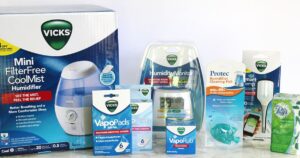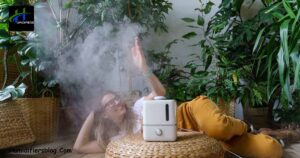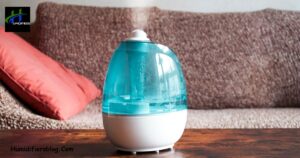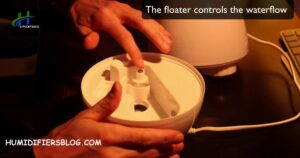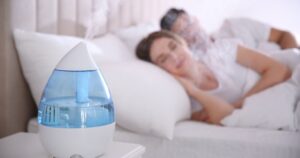Use distilled or demineralized water for humidifiers to prevent mineral buildup and microbial growth. Tap water often contains impurities that can damage the humidifier and release harmful particles into the air. Choosing the right water ensures a healthier and more efficient humidification process.
Unveiling the secret to superior humidifier performance lies in a simple choice what kind of water for humidifier? Optimal results are achieved by steering clear of mineral buildup and preserving air quality through the use of distilled or demineralized water. Transform your indoor environment with this essential decision, ensuring a healthier and more efficient humidification process.
Selecting the appropriate water for your humidifier, especially when considering Vicks in my humidifier is vital for its top-notch performance. To enhance the benefits of Vicks and your humidifier, opt for distilled or demineralized water. This choice helps prevent mineral deposits, ensuring that the Vicks vapor is dispersed efficiently, maintaining superior air quality.
Why Do People Use Distilled Water in Humidifiers?

People use distilled water in humidifiers to prevent mineral buildup, ensuring optimal performance and longevity of the device. Distilled water also helps maintain indoor air quality by eliminating impurities present in tap water that could be released into the air. This choice promotes a healthier living environment and reduces the need for frequent maintenance.
Prevent Mineral Buildup
Distilled water is preferred in humidifiers to prevent mineral buildup. Tap water often contains minerals that can accumulate in the humidifier over time, leading to clogs and reduced efficiency. Using distilled water minimizes the risk of these deposits, ensuring a longer lifespan for your humidifier.
Maintain Air Quality
This water helps maintain indoor air quality when used in humidifiers. Tap water may contain impurities and additives that, when vaporized, can be released into the air. By opting for distilled water, you reduce the likelihood of dispersing harmful particles, promoting cleaner and healthier air within your living spaces.
Prolong Humidifier Lifespan
The absence of minerals in distilled water not only prevents buildup but also contributes to the overall longevity of the humidifier. Without the corrosive effects of minerals, the humidifier components are less prone to damage, requiring less frequent maintenance and ensuring a more durable appliance. Choosing distilled water is a practical way to protect your investment and enjoy sustained humidifier performance.
What Type of Water Is Suitable in The Event of Distilled Water Shortage?
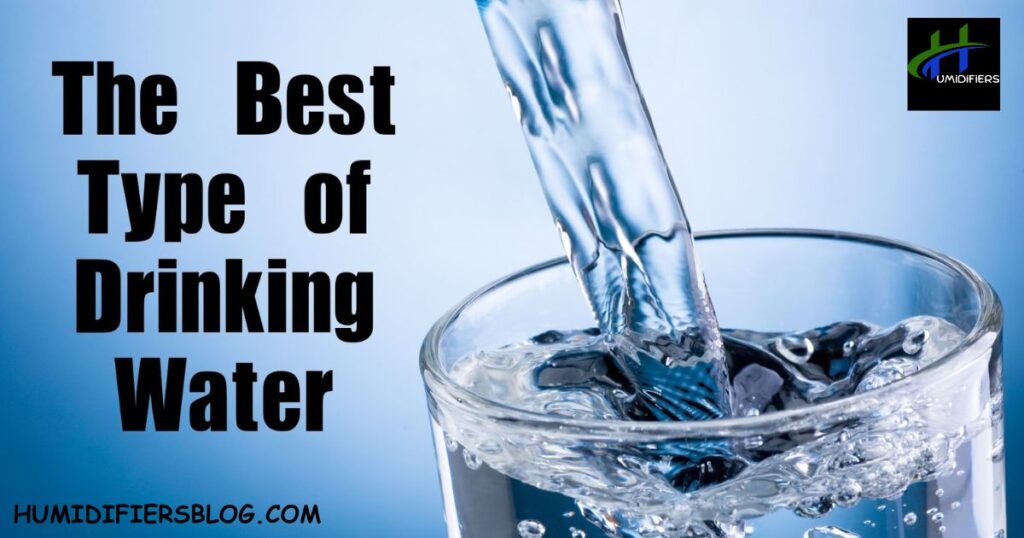
In the absence of distilled water, opt for demineralized water as a suitable alternative for humidifiers, reducing mineral buildup. Boiled and cooled tap water can be a temporary solution, although it may not eliminate all impurities. Emphasize regular maintenance and cleaning to mitigate potential issues when distilled water is unavailable, ensuring continued efficient operation.
Alternative Purified Water Options
In the event of a distilled water shortage, consider using other purified water options. Demineralized water, which has undergone a process to remove minerals, is a suitable alternative. While not identical to distilled water, it still minimizes mineral content, reducing the risk of deposits in your humidifier.
Boiled and Cooled Water
If distilled or demineralized water is unavailable, you can use boiled and cooled tap water as a temporary solution. Boiling helps eliminate some impurities, but it may not completely remove minerals. Allow the water to cool before adding it to the humidifier to avoid potential damage and ensure a safer humidification process.
Can you use bottled water in a humidifier?
Bottled water is generally a better option than tap water, as it tends to have fewer minerals and impurities. The mineral content can vary among different bottled water brands. This is still advisable to use distilled or demineralized water for optimal performance, but in a pinch, bottled water is a cleaner alternative to tap water.
Can you use tap water in a humidifier?
It may contain minerals and impurities that can lead to mineral deposits in the humidifier over time. These deposits can reduce efficiency and potentially release particles into the air. Regular cleaning and maintenance are important if tap water is used, and it advisable to check the manufacturer’s recommendations for your specific humidifier model.
How Can You Make Tap Water Safe for Humidifiers?

To enhance tap water for humidifiers, consider using a water filtration system to reduce impurities. Boiling tap water and allowing it to cool can minimize some minerals, though it may not eliminate all. Regularly clean and maintain the humidifier to prevent mineral buildup and ensure a safe and effective humidification process with treated tap water.
Filtration Systems
Install a water filtration system to remove impurities and minerals from tap water before using it in a humidifier. These systems can range from simple faucet attachments to more comprehensive under-sink filters, ensuring cleaner water for your humidification needs.
Boiling and Cooling
Boil tap water to eliminate some impurities and minerals, then allow it to cool before using it in the humidifier. While boiling may not remove all minerals, it can be a cost-effective method to enhance water quality and reduce the risk of deposits in the humidifier.
Distillation Techniques
Employ a simple distillation process at home to make tap water safer for humidifiers. Boil the tap water, collect the steam, and then condense it back into liquid form. This distilled water is purer and less likely to cause mineral buildup in the humidifier, promoting efficient operation.
Regular Cleaning Regimen
Regardless of the method used, implement a consistent cleaning routine for your humidifier. Regular maintenance, such as descaling and disinfecting, helps prevent mineral deposits and microbial growth, ensuring a safe and efficient humidification process even when using treated tap water.
Frequently Asked Questions
What are the consequences of using the wrong water in a humidifier?
Using the wrong water in a humidifier can cause mineral buildup, reduced efficiency, and air quality issues, requiring frequent maintenance.
Are there any specific water types to avoid in humidifiers?
Avoid hard water or those with high mineral content, as well as water containing additives or impurities, to ensure optimal humidifier performance.
Can I mix tap water with distilled water in the humidifier?
It’s not recommended to mix tap water with distilled water in the humidifier for optimal performance; consistently using distilled or demineralized water is advised.
Final Thoughts
The consideration of what kind of water for humidifier? is pivotal in maintaining a healthy indoor environment. Opting for distilled or demineralized water, specifically tailored for humidifiers, is a prudent decision. This approach prevents mineral deposits that can compromise the humidifier’s efficiency and lifespan. By using purified water, you not only ensure a cleaner and safer mist but also contribute to better air quality within your living spaces.
Regular maintenance becomes more manageable, reducing the likelihood of microbial growth and potential health hazards. Investing in the right water type for your humidifier not only enhances its performance but also fosters a comfortable atmosphere, promoting overall well-being for you and your surroundings. Consider this choice as an integral part of creating a harmonious and efficient home environment.

